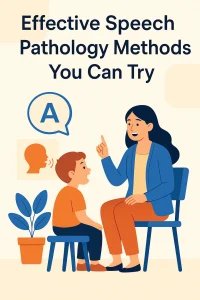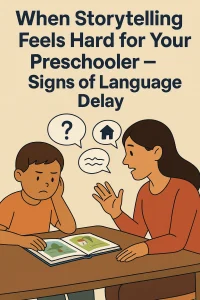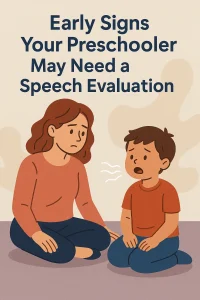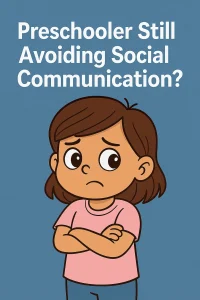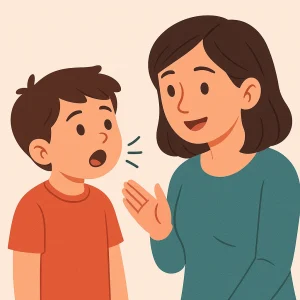Speech Therapy for Teens: Boost Confidence and Communication
By Rajini D
Last Updated: November 6, 2024
Picture your teen confidently giving a class presentation or chatting easily with friends. It sounds great, doesn’t it?
But for many teens, expressing themselves clearly can be a real challenge. And here’s something many people don’t know—speech therapy isn’t just for young kids or those with major speech issues. Teens, too, can benefit from learning to communicate better.
Understanding Speech Therapy for Teenagers
The teenage years can be tricky, especially when communication is such a big part of daily life. Good communication skills are essential for doing well in school, making friends, and even getting ready for future jobs. Here’s why speech therapy can make a real difference for teens and the challenges they often face.
Why Speech Therapy Matters for Teens
For teens, communication isn’t just about speaking clearly—it’s also about connecting with others, sharing ideas, and expressing who they are. In school, these skills are crucial. Imagine a student named Sarah who wants to join the debate club but feels nervous about speaking up. Speech therapy could help her develop the confidence and clarity to fully participate in activities she’s passionate about.
Socially, teens need strong communication skills to make friends, work through disagreements, and join in group activities. Take Alex, for instance. He might feel shy about talking in groups or struggle to get his words out when he’s nervous. Speech therapy can teach him helpful strategies to feel more relaxed, making it easier for him to connect with others and enjoy being social.
Looking ahead, communication is also key to career success. Think about interviews, presentations, and even casual conversations in a work setting. A teen who can express themselves clearly and confidently will feel more prepared for these situations. By learning these skills early through speech therapy, teens gain tools that will support them for a lifetime.
Common Communication Challenges for Teens
Teens can face a variety of speech and language challenges, each with its own impact on school, friendships, and daily life. Here are some of the most common obstacles and how they can affect teens.
Articulation Disorders
Articulation disorders make it hard for teens to pronounce certain sounds, which can lead to misunderstandings. Imagine a teen named Liam, who struggles with sounds like “r” or “s.” When people have trouble understanding him, it can make him feel frustrated and even embarrassed, causing him to avoid speaking up in class or hanging out with friends. Speech therapy helps teens like Liam by teaching them clear ways to make each sound, building their confidence to speak up and be understood.
Stuttering (Fluency Disorders)
Stuttering can make it challenging for teens to speak smoothly, which often affects their confidence. For example, a teen like Mia might hesitate or repeat words when trying to answer a question in class or introduce herself to new people. This can make her feel anxious about talking in front of others. With speech therapy, Mia can learn techniques to manage her stutter, helping her feel more relaxed and able to communicate without fear.
Social Language Disorders
Social language disorders affect the subtleties of communication, like understanding jokes, sarcasm, or non-verbal cues. Teens with these challenges might miss social cues, making it hard to fit in with peers. Imagine Jake, who finds it difficult to read body language or understand when someone is joking. This can lead to confusion and make social situations feel awkward, affecting his ability to form friendships. Speech therapy can help teens like Jake learn these social skills through role-playing and practice, so they feel more comfortable and confident in social settings.
The Signs That Your Teen Might Benefit from Speech Therapy
Knowing the signs that your teen may need speech therapy can make a big difference in their confidence and development. As a parent, being able to spot these signs early means you can help your teen get support at just the right time. Here’s what to look out for:
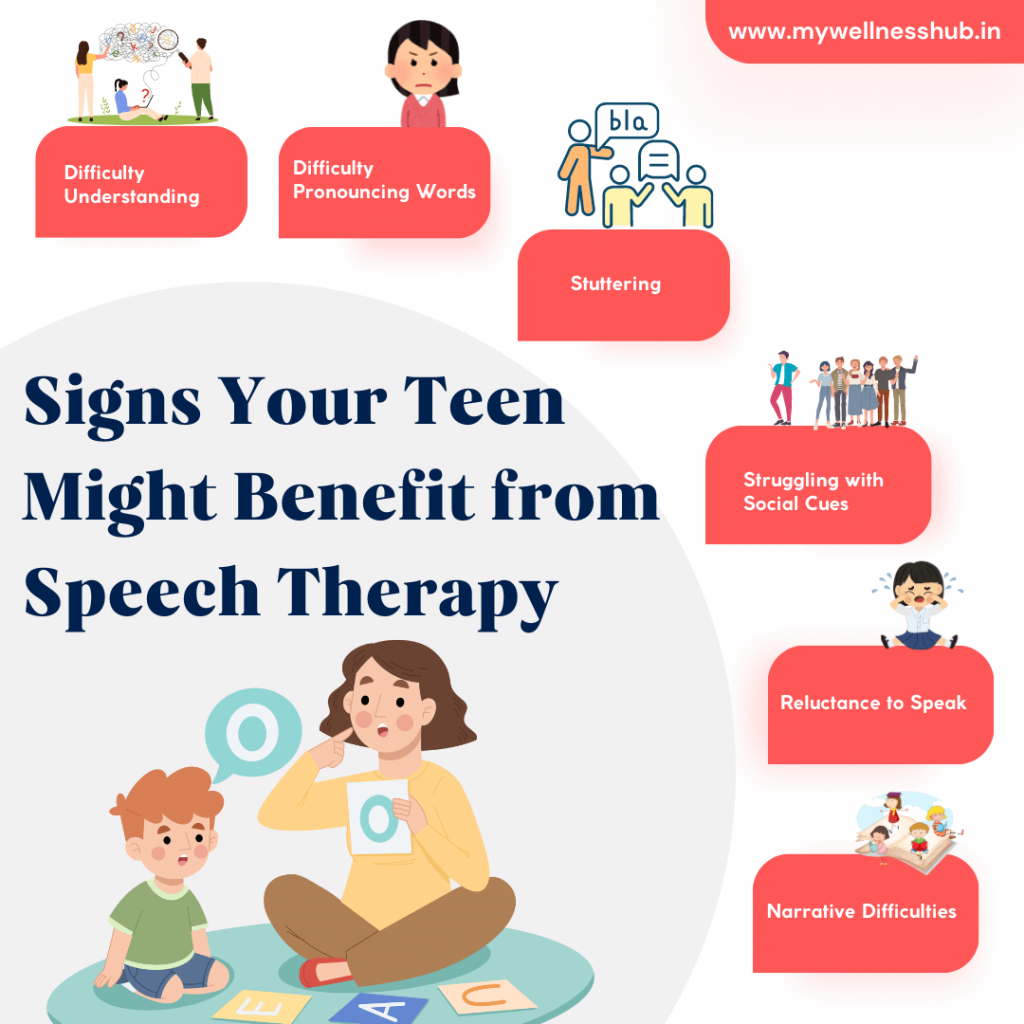
Recognizing the Need
Difficulty Pronouncing Words
If your teen often struggles with certain sounds or words, it might be more than just a unique speech quirk—it could signal an articulation issue. Imagine a teen named Josh who has difficulty saying “r” sounds, often pronouncing “rabbit” as “wabbit.” This can sometimes make him feel embarrassed or frustrated. Speech therapy can help teens like Josh learn to pronounce words more clearly, making communication easier and more comfortable.
Challenges in Understanding or Expressing Thoughts
Does your teen seem to get lost in conversations or struggle to explain their thoughts? These could be signs of expressive or receptive language issues. For instance, if Sarah has a hard time organizing her thoughts or gets confused following instructions, she might feel misunderstood or frustrated. Speech therapy can support teens like Sarah by helping them build skills to understand conversations and express themselves more clearly.
Stuttering
If your teen hesitates, repeats words, or stutters frequently, it can be distressing and might make them hesitant to speak up. Imagine Alex, who gets stuck on certain sounds when talking and often avoids speaking in front of others because of it. Speech therapy can help Alex learn techniques to improve his fluency, helping him feel more confident in speaking.
Know more about What is Stuttering: Types, Symptoms, and Causes
Struggling with Social Cues
Some teens find it challenging to pick up on social cues, like maintaining eye contact, taking turns in conversation, or understanding sarcasm. For example, Emma often misses these subtle cues, which sometimes makes her feel left out or confused in social settings. Speech therapy can help Emma practice social communication skills, making interactions easier and helping her feel more connected with friends.
How Speech Therapy Works for Teens
Understanding how speech therapy works can help both teens and parents feel more comfortable and confident about the process. Here’s a breakdown of what to expect and how it can make a difference.
The Speech Therapy Process
Speech therapy starts with a thorough assessment by a speech-language pathologist. This first step is essential because it helps pinpoint specific areas where your teen may need support, such as fluency, vocabulary, articulation, or social communication skills.
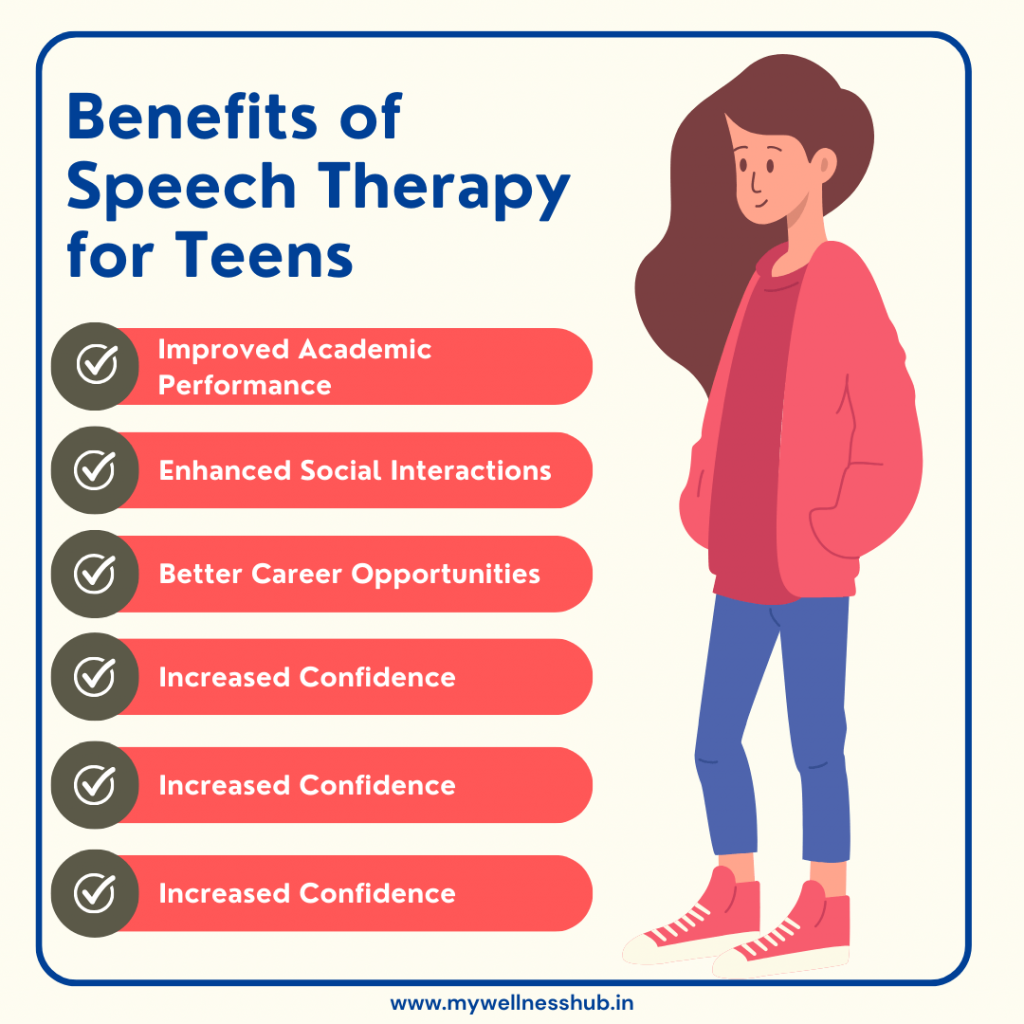
Based on this assessment, the SLP creates a custom therapy plan tailored to your teen’s needs. For example, if your teen struggles with fluency, one goal might be to improve smoothness in their speech. If social cues are a challenge, the plan could focus on skills like maintaining eye contact or taking turns in conversations. This plan is flexible, meaning goals are adjusted as your teen progresses, ensuring the therapy stays relevant and effective.
What Sessions Look Like
Speech therapy sessions for teens are designed to feel relatable and meaningful. Unlike sessions for young children, which might be play-focused, teen sessions often use real-life scenarios, discussions, and role-playing. This keeps therapy age-appropriate and engaging.
For example, if your teen loves sports, the SLP might use sports-themed exercises to work on communication goals, such as practicing conversation skills by discussing recent games or role-playing sports commentary to build fluency. If your teen enjoys reading, the therapist might incorporate stories to help expand vocabulary and practice narration.
Sessions usually last between 30 to 60 minutes and provide a safe, supportive environment. The SLP ensures that each session is a space where teens feel comfortable to explore their communication skills, try new techniques, and work on challenges without judgment.
Speech Therapy Goals and Activities
| Goals | Activities | Expected Outcomes |
|---|---|---|
| Improving Fluency | – Reading aloud – Practice speaking at a slow, controlled pace – Breathing exercises to control speech pace | – Smoother speech with fewer interruptions – Increased comfort while speaking |
| Expanding Vocabulary | – Vocabulary games (e.g., word matching, definition quizzes) – Using new words in sentences – Reading diverse genres of books | – Greater word usage in daily conversation – Enhanced ability to express complex ideas |
| Enhancing Articulation | – Pronunciation drills – Tongue twisters – Repeating challenging words and sentences | – Clearer speech – Improved ability to be understood by others |
| Boosting Listening Skills | – Following multi-step directions – Listening comprehension exercises with stories or articles – Interactive games requiring careful listening | – Better understanding of spoken information – Improved ability to follow conversations |
| Developing Social Skills | – Role-playing different social scenarios – Group therapy sessions to practice conversational turn-taking – Watching and discussing video clips for social cues | – Improved ability to initiate and maintain conversations – Enhanced understanding and use of social cues |
| Increasing Narrative Skills | – Storytelling exercises, both oral and written – Sequence cards to order events of a story – Sharing personal experiences with structured prompts | – Enhanced ability to tell coherent stories – Improved organizational skills in speech and writing |
Supporting Your Teen at Home
Your support as a parent plays a big role in helping your teen build and strengthen their communication skills outside of therapy. Here are some fun and practical tips to encourage your teen’s growth at home and keep them motivated on their journey.
Practical Tips for Communication Development
Encourage Open Conversations
Create chances for open conversations by asking about your teen’s day or interests, helping them practice clear expression and boosting their confidence.
- Practice Active Listening
Listen actively when your teen speaks, making eye contact and asking questions, which reinforces their social skills and shows the importance of attentive listening. - Use Real-Life Scenarios
Encourage your teen to practice speaking confidently in daily settings, like ordering at a restaurant, or role-play situations at home to strengthen their articulation and social cues. - Celebrate Small Wins
Celebrate every bit of progress to build your teen’s confidence, offering praise when they share ideas or start conversations independently.
Keeping Them Motivated
- Connect Practice with Their Interests
Incorporate your teen’s interests, like discussing movies or sports, to make speech exercises more enjoyable and boost their fluency naturally. - Set Realistic Goals Together
Work with your teen to set small, achievable goals, like speaking up in one class discussion weekly, giving them a sense of progress and motivation. - Encourage Social Interaction
Plan social activities that allow your teen to practice communication skills, like a movie night with friends, helping them build confidence in real-life settings.
Enhancing Communication Skills Outside Therapy
Practicing communication outside of therapy can help your teen feel more confident and improve their skills in a natural, supportive environment. Here are some enjoyable and effective ways to build these skills at home.
- Engage in Meaningful Conversations
Use everyday moments to talk with your teen, asking thoughtful questions like, “What was the best part of your day?” to help them express themselves fully. - Read Together
Choose books or articles that interest your teen and read together, discussing characters and plot to encourage critical thinking and verbal expression. - Play Word Games
Play games like Scrabble or crosswords as a fun way to build vocabulary and connect as a family, making language practice enjoyable. - Watch and Discuss Movies or Shows
Watch shows or movies together and ask questions about plot and characters to spark conversation, which strengthens expressive language and analysis skills. - Encourage Journaling or Creative Writing
Encourage journaling or creative writing to help your teen process emotions and improve language skills through personal expression.
Read more: Home Based Speech Therapy Activities for 1-2 Years Kids
Encouraging Motivation and Participation
Keeping your teen motivated in their speech therapy journey can make a huge difference in their progress. Here are some ways to boost their engagement and help them stay positive about therapy.
- Align Therapy with Interests
Talk to the speech therapist about incorporating your teen’s interests, like sports or music, into sessions to make therapy more engaging and relevant. - Set Realistic Goals
Set small, achievable goals with your teen and their therapist, such as speaking up in class weekly, celebrating progress to keep motivation high. - Create a Supportive Environment
At home, create a patient, supportive environment that encourages your teen to practice communication without interruption, boosting their confidence. - Encourage Social Interactions
Encourage your teen to join social activities, like clubs or volunteer groups, to practice communication skills in real-life settings and build confidence. - Stay Involved
Attend therapy sessions when possible and practice learned skills at home, showing your teen they’re supported every step of the way.
Comparing Speech Therapy Progress: Before and After
| Criteria | Before Therapy | After Therapy |
|---|---|---|
| Articulation | Difficulty pronouncing certain sounds or words. | Clear and correct pronunciation of previously challenging sounds or words. |
| Fluency | Frequent stuttering or hesitations during speech. | Smoother, more fluid speech with fewer interruptions. |
| Social Skills | Challenges in initiating or participating in conversations; misunderstanding social cues. | Improved conversational skills; better recognition and use of social cues. |
| Confidence | Reluctance to speak in public or social settings due to fear of being misunderstood. | Increased willingness to communicate in various settings bolstered self-confidence. |
| Listening Skills | Difficulty following directions or understanding spoken information. | Enhanced ability to follow complex instructions and understand conversations. |
| Vocabulary | Limited word usage, difficulty expressing complex ideas. | Expanded vocabulary, ability to express thoughts more precisely and creatively. |
| Narrative Skills | Challenges in organizing thoughts into coherent stories or explanations. | Improved storytelling skills, including better structure and detail in narratives. |
Finding the Right Speech Therapist for Your Teen
Choosing the right speech therapist is key to ensuring your teen gets the support they need to grow and thrive. Today, families can choose between traditional in-person therapy and online speech therapy, each with its own unique advantages.
Options for Therapy
In-Person Therapy:
Traditional, face-to-face sessions offer a personal connection that many families find comforting. For teens who respond well to hands-on guidance and a structured environment, in-person sessions can be highly effective. For example, a teen named Mia, who benefits from direct visual cues and physical props, may feel more engaged in a therapist’s office where these resources are readily available. The personal interaction can help teens feel more connected and supported, which is important for those who prefer direct, one-on-one guidance.
Online Speech Therapy:
Online speech therapy provides unmatched convenience and flexibility, allowing teens to receive therapy from home. This can relieve the stress of travel and fit more easily into busy family schedules. Many online platforms also use interactive tools like video games, apps, and other digital media that teens enjoy. For instance, Alex, who feels most at ease in familiar surroundings, might thrive in an online setting where he can learn new skills without the pressure of being in a clinic. Online therapy can be particularly beneficial for tech-savvy teens or those who prefer a flexible approach.
Both options have their benefits, and the best choice depends on your teen’s specific needs, preferences, and the recommendations of their speech-language pathologist.
Learn more about in our article Best Online Speech Therapy in Hyderabad
Conclusion
Recognizing and addressing speech challenges in teens can transform their lives, boosting confidence, academic success, and future career readiness. Speech therapy gives teens valuable communication skills, helping them overcome obstacles and feel empowered in social settings. At Wellness Hub, we’re here to support every step of this journey, offering tailored, engaging therapy options—both online and in-person. Investing in your teen’s communication skills today lays the foundation for a brighter, more confident future. Explore our services and find the right support for your teen’s unique needs.
Frequently Asked Questions:
1. Can teenagers benefit from speech therapy?
Absolutely. Teenagers can significantly benefit from speech therapy, which can address a variety of communication challenges, such as stuttering, articulation issues, and social communication difficulties. It’s a crucial step towards enhancing their academic performance and social interactions and preparing them for future career opportunities.
2. What are the signs my teen might need speech therapy?
Signs that a teenager may benefit from speech therapy include difficulty pronouncing words, challenges in understanding or expressing thoughts, stuttering, and struggling with social cues. Early recognition and intervention can lead to more effective outcomes.
3. How does speech therapy work for teenagers?
Speech therapy for teenagers involves a personalized plan developed after a thorough assessment by a speech-language pathologist. It can include goals like improving fluency, vocabulary, and social skills, with sessions tailored to engage the teen effectively.
4. What can I do to support my teen’s speech therapy at home?
Supporting your teen at home can be done through engaging in conversations, reading together, playing word games, and encouraging journaling or creative writing. These activities reinforce what they learn in therapy and help build their confidence in communication.
5. How do I find the right speech therapist for my teenager?
Finding the right speech therapist involves considering both in-person and online therapy options, evaluating the therapist’s experience with teens, and ensuring they provide a supportive and engaging environment. Wellness Hub specializes in matching teens with specialized speech therapists tailored to their unique needs.
6. What makes Wellness Hub’s approach to speech therapy for teens unique?
Wellness Hub’s approach is unique due to its commitment to matching teenagers with specialized speech therapists who understand their specific challenges and goals. Offering both in-person and online options, Wellness Hub ensures flexibility, convenience, and a supportive environment for teens to grow and improve their communication skills.
7. Is online speech therapy as effective as in-person sessions for teenagers?
Yes, online speech therapy can be just as effective as in-person sessions for teenagers. It offers flexibility, comfort, and access to a variety of interactive tools and resources that make sessions engaging. The effectiveness of online therapy depends on the individual’s needs, the therapist’s approach, and how sessions are structured to engage the teen.
8. How long does a teenager need to attend speech therapy?
The duration of speech therapy varies for each teenager, depending on the nature and severity of their communication challenges, their goals, and how they progress in therapy. Some may see significant improvement within a few months, while others might need longer-term support. A speech-language pathologist can provide a more personalized timeframe after assessing the teen.
9. Can speech therapy help with social skills and confidence?
Absolutely. Speech therapy can significantly help teenagers improve their social skills and confidence. By addressing challenges with social communication, such as understanding social cues and engaging in conversations, speech therapy empowers teens to communicate more effectively with their peers and in various social settings, thereby boosting their confidence.
10. What role do parents play in their teenager’s speech therapy?
Parents play a crucial role in their teenager’s speech therapy journey. Beyond just facilitating attendance at therapy sessions, parents can support their teen at home through conversation, reading, and other recommended activities. They can also provide encouragement and celebrate progress, which is vital for the teen’s motivation and confidence. Engaging with the therapist to understand and reinforce strategies at home can further enhance the therapy’s effectiveness.
About the Author:
Rajini Darugupally
M.Sc., Speech-Language Pathologist (9+ years of experience)
Rajini is a passionate and dedicated Speech-Language Pathologist with over 9+ years of experience, specializing in both developmental speech and language disorders in children and rehabilitation in adults. Driven by a desire to empower each individual to find their voice, Rajini brings a wealth of experience and a warm, genuine approach to therapy.
Book your Free Consultation Today
Parent/Caregiver Info:
Client’s Details:
* Error Message




